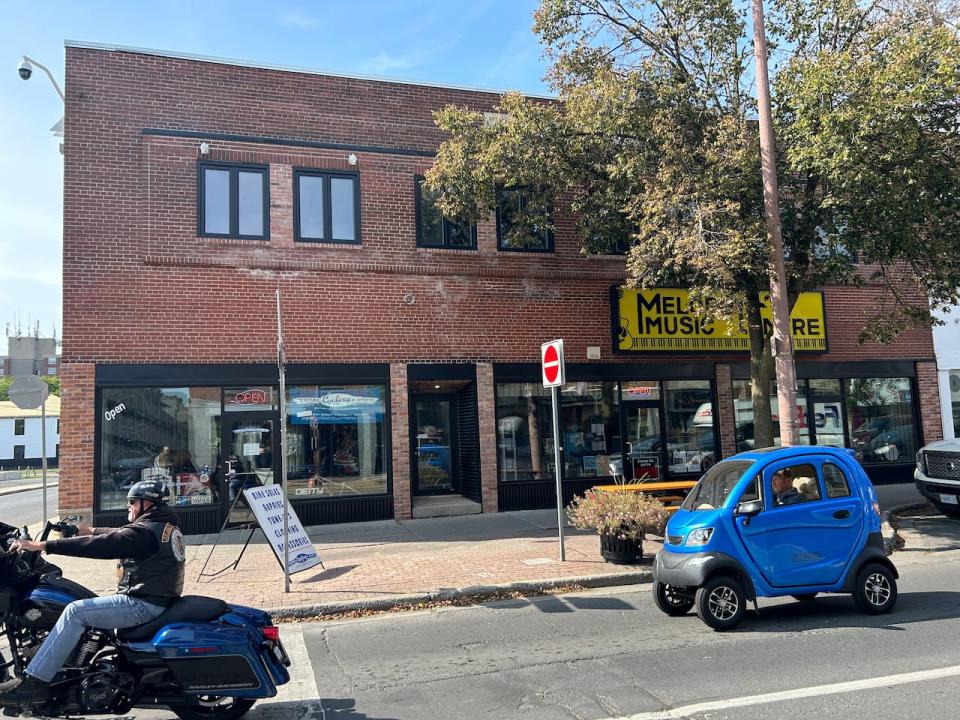Cornwall developer says city conspired to 'blacklist' him after failed land deal

A developer in Cornwall, Ont., alleges the city conspired to stifle his plans by withholding building permits after he declined to sell other land to the municipality.
The city, meanwhile, is denying all the legal claims made against it by Aaron Bell, president of Rothmar Holdings, and is questioning the firm's stated affordable housing plans.
Bell filed a statement of claim against the city this past summer. A court hearing related to the case is set for next month.
In an interview last week, Bell said Rothmar previously had an "amicable" relationship with the city and had been able to develop some properties in the eastern Ontario community.
"And then, it seemed like there was basically a switch, where all of a sudden that relationship ended," Bell said. "And we were basically unable to continue doing business in the city of Cornwall."
According to the statement of claim, that "switch" happened after the city made two offers in April 2021 to buy land Bell owned on Marleau Avenue, a road it has been planning to widen.
Bell declined both offers.
The [city] deliberately ... denied Rothmar's building permit applications, whether because of Bell's refusal to [sell] the Marleau property, because of a personal animosity towards Bell, or for some other reason known only to the defendants. - Allegations in Rothmar's statement of claim
Then, in early 2022, the city began withholding permits from the company "on the basis of arbitrary or capricious reasons," according to Rothmar's statement of claim.
"The [city] deliberately ... denied Rothmar's building permit applications, whether because of Bell's refusal to [sell] the Marleau property, because of a personal animosity towards Bell, or for some other reason known only to the defendants," the statement of claim argues.
In addition to forcing the company to sell off some of its properties, "the plan to 'blacklist' Rothmar for Bell's refusal to co-operate with the city ... had their intended effect of damaging Rothmar's business," it says.
The company is seeking $20 million in damages.

This Pitt Street building in downtown Cornwall is one of the properties Rothmar said it had hoped to redevelop as affordable housing. (Guy Quenneville/CBC)
City denies 'the existence of a conspiracy'
None of the allegations against the City of Cornwall has been proven in court. The city declined to be interviewed.
In its statement of defence, the city rejected "each and every allegation" made by Rothmar, including the claim that the denial of permits was "in any way improper" as well as "the existence of a conspiracy."
Each of the disputed permit applications was received and reviewed "in the ordinary course," the statement says, and building officials communicated "promptly and reasonably" with Rothmar about "deficiencies" in the applications.
According to Rothmar, some of the permits it sought were for new public housing it had pledged to the city.
But the city's court filing called it a "purported" pledge and said Bell "did not present a formal proposal."
"No commitments or agreements were made regarding the provision of 'affordable' residential units," the city argued.
Business owner caught in the middle
Another of the disputed permits was intended for 155 Pitt St., a downtown building owned by Rothmar where Suzanne Prosser moved her clothing store for women and teens in 2022.
Prosser said that without the permit, she's been unable to operate physically inside her store for over a year.
She said she's had to pivot to selling products online and delivering them to people's houses, while remortgaging her house to pay back federal business loans.
"Mentally, it's been a huge strain," Prosser said of the delay. "A lot of people still think that I just went out of business."


